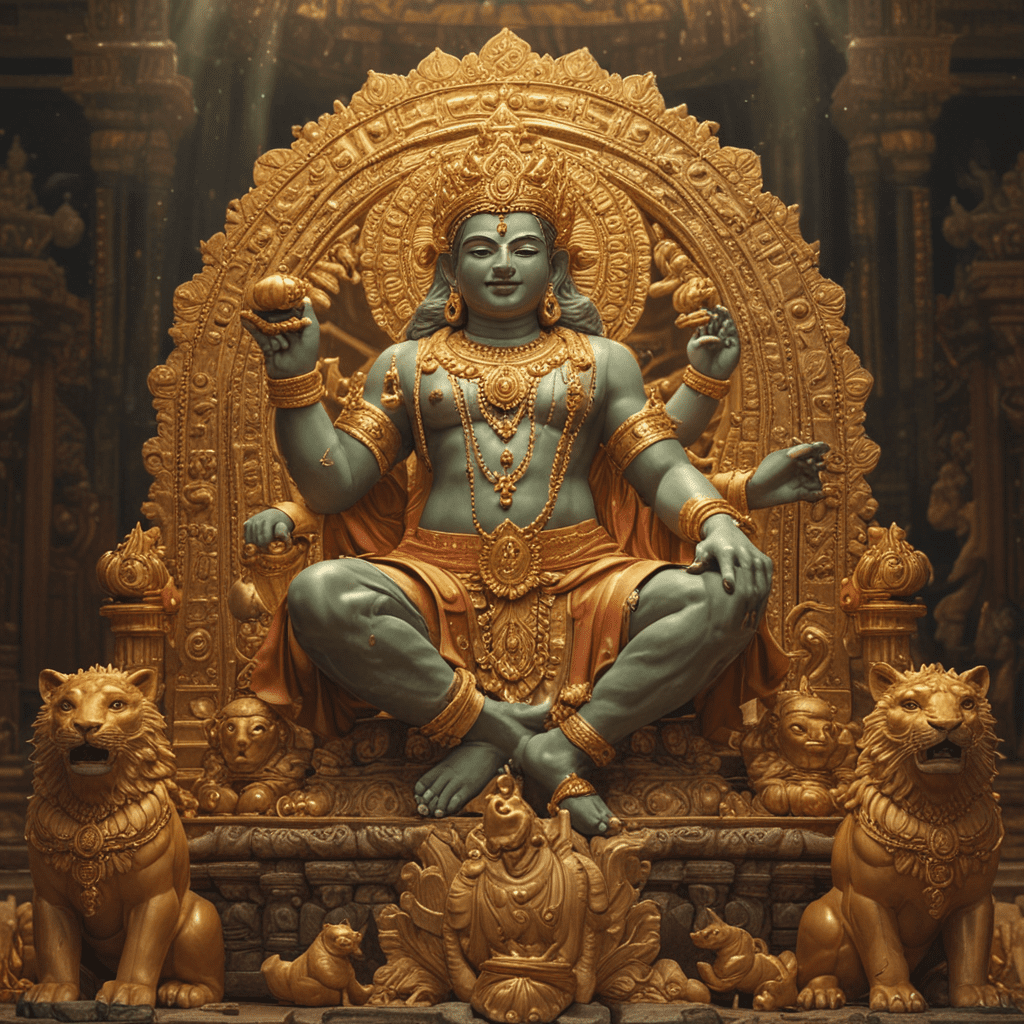The Titans’ Tussle: The Most Intense Mythological Showdowns
Introduction: Setting the Stage for Mythological Battles
Mythological showdowns have always held a significant place in human culture, serving as powerful narratives that explore the complexities of power, conflict, and the human condition. Among the most formidable figures in these tales are the Titans, colossal deities who epitomize both strength and chaos. Their stories encapsulate overarching themes of rebellion, familial strife, and the struggle for supremacy, resonating across generations and cultures.
The Titans Defined: Who Are They?
In Greek mythology, the Titans were the primordial beings that preceded the Olympian gods, ruling during the Golden Age. They are often depicted as immense, powerful figures, representing various aspects of the natural world and human experience. Key Titans include:
- Cronus: The leader of the Titans, known for his role in the overthrow of his father, Uranus.
- Rhea: The sister and wife of Cronus, who played a crucial role in the survival of her children.
- Oceanus: The Titan of the ocean, symbolizing the vast and untamed waters.
- Hyperion: The Titan of light, representing celestial bodies like the sun.
- Coeus: The Titan of intellect and the axis of heaven.
These Titans not only embody power but also the dualities of creation and destruction, reflecting the complexities of existence itself.
The Titanomachy: The Epic War Against the Olympians
The Titanomachy was a cataclysmic war that pitted the Titans against the Olympian gods, led by Zeus. This monumental clash was sparked by a prophecy that foretold the downfall of Cronus at the hands of one of his children. To prevent this, Cronus swallowed each of his offspring, but Rhea saved Zeus by hiding him on the island of Crete.
Key battles in the Titanomachy included fierce confrontations on Mount Olympus and the subsequent release of the Cyclopes and Hecatoncheires, who aided Zeus and his allies. The war lasted for ten years and culminated in the defeat of the Titans, who were then imprisoned in Tartarus.
Cronus vs. Zeus: Father Against Son
The conflict between Cronus and Zeus is a profound narrative of betrayal and power dynamics. Cronus, fearful of being overthrown, resorted to drastic measures, only to be ultimately betrayed by Zeus, his own son. This clash is emblematic of the struggle between generations and the inevitable rise of the new over the old.
The themes of destiny and rebellion are central to this story. Zeus’s eventual rebellion against his father not only marks his ascension but also represents the cycle of power that governs both divine and human realms. This father-son conflict encapsulates the timeless struggle between authority and the yearning for freedom.
The Clash of the Titans: Prometheus and Epimetheus
Prometheus and Epimetheus are two Titans known for their pivotal roles in the creation of humanity. Prometheus, the “forethought” Titan, is credited with stealing fire from the gods and giving it to mankind, symbolizing enlightenment and progress. In contrast, Epimetheus, “afterthought,” was responsible for bestowing gifts upon animals and humans but neglected to prepare for his brother’s act.
The consequences of their actions were dire: Prometheus faced eternal punishment at the hands of Zeus, while humanity was left vulnerable. This clash illustrates the themes of sacrifice and foresight versus hindsight, showcasing the complexities of creation and the inherent risks involved.
Gaia vs. Uranus: The Birth of the Titans
The primordial battle between Gaia (Earth) and Uranus (Sky) is foundational in Greek mythology, marking the birth of the Titans. Uranus imprisoned their children within Gaia, leading her to conspire with Cronus to overthrow him. This conflict symbolizes the struggle between the earth and the sky, the feminine and the masculine, and the cyclical nature of creation and destruction.
This epic confrontation not only gave rise to the Titans but also set the stage for the ongoing cycle of conflict between generations of gods, encapsulating the essence of mythological narratives.
Typhon: The Titan’s Last Stand Against the Olympians
Typhon, known as the “father of all monsters,” was a fearsome creature born from Gaia and Tartarus, and he represents the last great challenge to the Olympians. Described as a giant with a hundred heads, each capable of producing fire, Typhon’s battle against Zeus is a significant moment in mythological history.
The struggle between Typhon and Zeus symbolizes the ultimate clash between chaos and order, with Zeus emerging victorious. This victory not only solidified Zeus’s position as king of the gods but also represented the triumph of civilization over primal chaos.
The Legacy of Titan Showdowns: Influences on Modern Storytelling
The mythological battles between Titans and Olympians have had a lasting impact on modern storytelling, influencing literature, film, and other forms of media. These narratives continue to resonate, as they explore universal themes of power, conflict, and the human experience.
Examples of contemporary adaptations include:
- Movies: Films like “Clash of the Titans” and “Immortals” draw heavily from these mythological conflicts.
- Literature: Books such as Rick Riordan’s “Percy Jackson” series reinterpret these ancient tales for new audiences.
- Video Games: Titles like “God of War” incorporate elements of Titan mythology into their narratives.
Cultural Interpretations: Variations of Titans Across Mythologies
While the Titans are primarily known from Greek mythology, similar figures appear in various cultures, embodying the themes of struggle and divine conflict. For example:
- Hindu Mythology: The Asuras and Devas represent opposing forces in a cosmic battle for supremacy.
- Norse Mythology: The Jotnar (Giants) clash with the Aesir gods, mirroring the Titan conflicts.
These parallels highlight the universal narratives of conflict and the quest for power that transcend cultural boundaries.
Conclusion: The Enduring Fascination with Titan Conflicts
The fascination with Titan showdowns endures because these mythological battles resonate deeply with the human experience. They reflect our struggles with authority, the complexities of familial relationships, and the eternal quest for power and identity. As society evolves, these narratives continue to offer insights into human nature and societal dynamics, ensuring that the stories of the Titans remain relevant and captivating across time and cultures.



